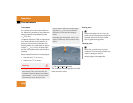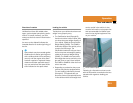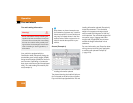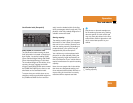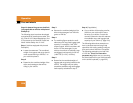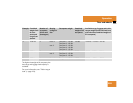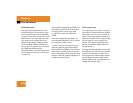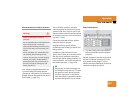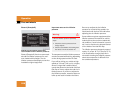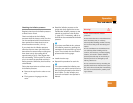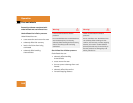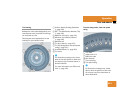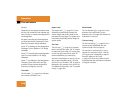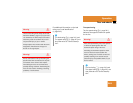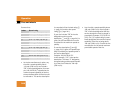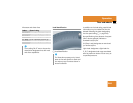
258
Operation
Tires and wheels
Placard (Example B)
Vehicle Tire Information placard with
recommended cold tire inflation pressures
Placard (Example B) lists the recommend-
ed cold tire inflation pressures for maxi-
mum loaded vehicle weight. The tire
inflation pressures listed apply to the tires
installed as original equipment.
Important notes on tire inflation
pressure
Tire temperature and tire inflation pressure
are also increased while driving, depending
on the driving speed and the tire load.
If you will be driving your vehicle at high
speeds of 100 mph (160 km/h) or higher,
where it is legal and conditions allow,
consult the placard on the inside of the fuel
filler flap on how to adjust the cold tire in-
flation pressure. If you do not adjust the
tire inflation pressure, excessive heat can
build up and result in sudden tire failure.
Be sure to readjust the tire inflation
pressure for normal driving speeds. You
should wait until the tires are cold before
adjusting the tire inflation pressure.
Some vehicles may have supplemental tire
inflation pressure information for vehicle
loads less than the maximum loaded vehi-
cle condition. If such information is provid-
ed, it can be found on the placard located
on the inside of the fuel filler flap.
Tire inflation pressure changes by approxi-
mately 1.5 psi per 18°F (0.1 bar per 10°C)
of air temperature change. Keep this in
mind when checking tire inflation pressure
where the temperature is different from
the outside temperature.
Warning! G
If the tire inflation pressure repeatedly
drops:
ț Check the tires for punctures from
foreign objects.
ț Check to see whether air is leaking from
the valves or from around the rim.



